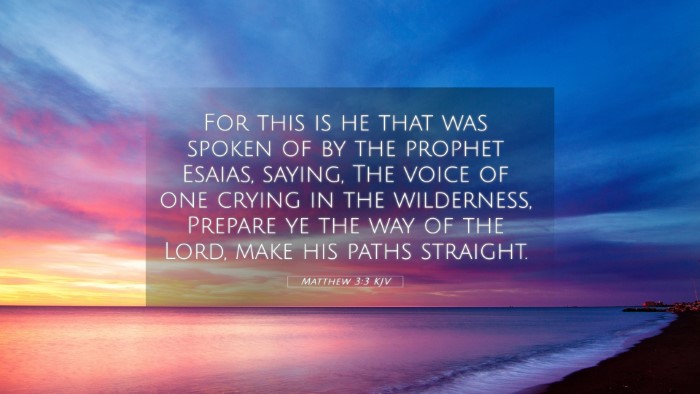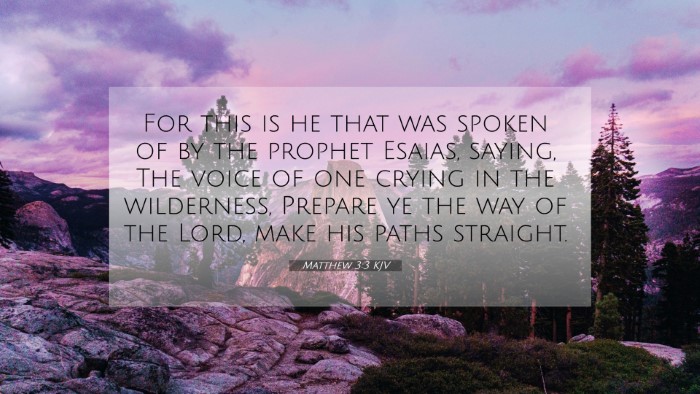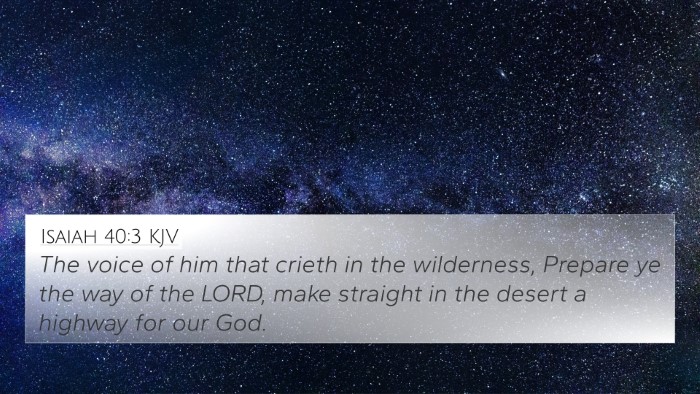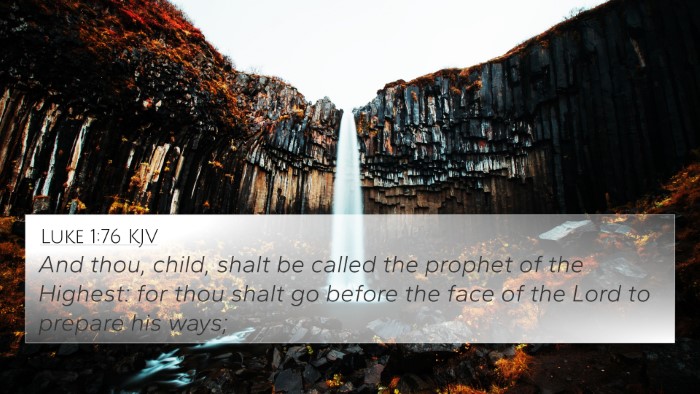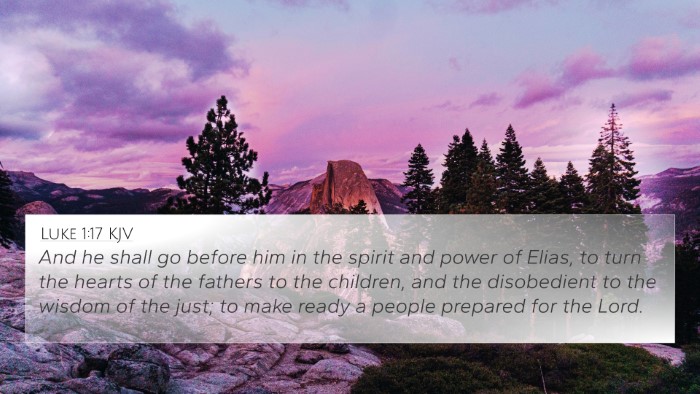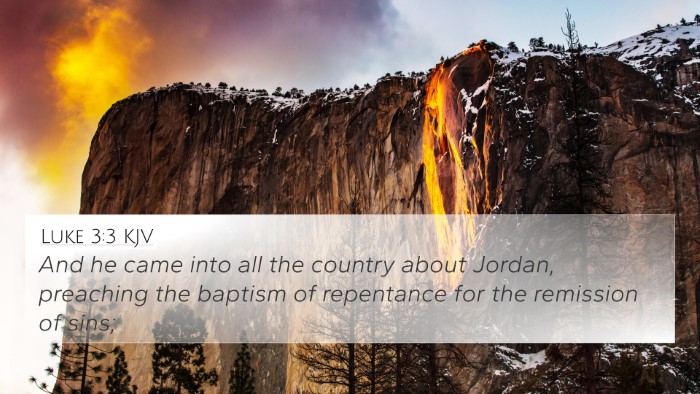Understanding Matthew 3:3
Matthew 3:3 states: "For this is he that was spoken of by the prophet Isaiah, saying, The voice of one crying in the wilderness, Prepare ye the way of the Lord, make his paths straight." This verse identifies John the Baptist as the fulfillment of Isaiah's prophecy, emphasizing the significant role he plays in the coming of Jesus Christ.
Meaning and Context
The context of Matthew 3:3 is crucial to understanding its implications. John the Baptist appears as a forerunner to Jesus, fulfilling the prophetic words of Isaiah. This anticipation of the Messiah is a central theme that echoes throughout the Bible.
Public Domain Commentary Insights:
From Matthew Henry, we learn that John's voice symbolizes divine communication, reminding believers of the importance of repentance. Albert Barnes adds that the "wilderness" signifies a place of solitude where God often calls His prophets, illustrating the disconnect from earthly concerns necessary for spiritual preparation. Adam Clarke explains that "making paths straight" refers to preparing the hearts of the people for Christ’s coming.
The Role of John the Baptist
John's preaching serves a dual purpose: calling for repentance and preparing the people for the imminent arrival of the Messiah. This connection between Old Testament prophecy and New Testament fulfillment is profound, illustrating God's cohesive plan across time.
Bible Verse Cross-References
Matthew 3:3 has several related verses that enhance the understanding of its message:
- Isaiah 40:3: "The voice of him that crieth in the wilderness, Prepare ye the way of the Lord..." - The direct prophecy merging with John the Baptist's mission.
- Malachi 3:1: "Behold, I will send my messenger, and he shall prepare the way before me..." - Another call for preparation for the Lord’s entrance.
- Luke 3:4-6: This passage illustrates how John was fulfilling Isaiah’s prophecy in his ministry.
- John 1:23: "He said, I am the voice of one crying in the wilderness, Make straight the way of the Lord..." - John's own declaration, further solidifying his role as the forerunner.
- Acts 19:4: Paul references John's baptism of repentance, linking the continuity of messages between John and the early church.
- Matthew 11:10: Jesus refers to John the Baptist as the messenger of whom Malachi spoke.
- Isaiah 62:10: "Go through, go through the gates; prepare ye the way of the people..." - An emphasis on preparing the way for God's people.
- Mark 1:3: Similar to Matthew, this synoptic gospel highlights John’s essential role.
- Romans 10:15: "How beautiful are the feet of them that preach the gospel of peace..." - Pointing to the beauty of those who prepare the way through preaching.
- Hebrews 12:13: "And make straight paths for your feet..." - Echoing the principle of preparing a right path in our spiritual lives.
Connections Between Bible Verses
The thematic connections between Matthew 3:3 and these verses demonstrate a clear line of prophetic fulfillment from the Old Testament to the New Testament. This inter-Biblical dialogue is essential in grasping the continuity of God's message throughout scripture.
For those interested in Bible verse parallels and cross-referencing Biblical texts, the linkages provide a rich tapestry of spiritual truths that build on each other.
Tools for Bible Cross-Referencing
Understanding parallels and connections is made easier with resources such as:
- Bible Concordance: A helpful tool for finding specific topics and themes throughout scripture.
- Bible Cross-Reference Guide: Detailed guides that link verses thematically or contextually.
- Bible Reference Resources: Comprehensive materials that aid in cross-referencing scripture.
- How to Use Bible Cross-References: Instructional content on effectively harnessing the power of cross-referencing in study.
- Cross-Referencing Bible Study Methods: Techniques to deepen understanding through comparative analysis of scripture.
Conclusion
Matthew 3:3 is a pivotal verse that encourages individuals to prepare their hearts for the Lord. Understanding its meaning requires acknowledging its prophetic roots and its fulfillment in John the Baptist's ministry. The connections with other scriptures serve to amplify its significance, providing a robust framework for exploring the New Testament’s ties to the Old Testament.
For further study, it is beneficial to explore how these verses interconnect and relate to broader themes, utilizing various Bible cross-reference systems available today.

